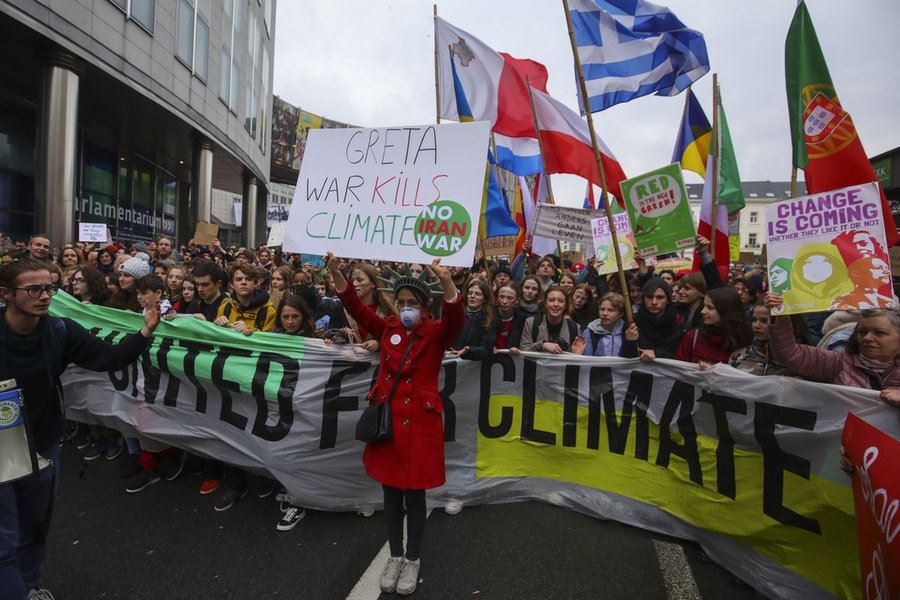REPRINTED WITH PERMISSION FROM THE CHRISTIAN SCIENCE MONITOR
The pace and intensity of the global response to the coronavirus should inspire better cooperation on global warming.
Two of the world’s biggest challenges – the coronavirus scare and climate change – differ in many ways. Yet in one, the virus challenge, there may be lessons for the other.
 Climage-change protesters march past the European Parliament in Burssels March 6.AP
Climage-change protesters march past the European Parliament in Burssels March 6.AP
Just three months ago the idea of a new virus spreading quickly across the globe was not in public thought. Now countries have sprung into action. Yet for decades the world has debated climate change with little to show in reduced carbon emissions. How did concern for the coronavirus leapfrog over climate change in priority?
The answer, of course, is that the virus is seen as an immediate threat demanding immediate action. Climate change is slow-moving, like the proverbial frog in the cooking pot. The effects of rising temperatures are imperceptibly tolerated until it is too late to hop out. Yet now as a result of the virus crisis, more people could be persuaded to act on the scientific predictions about global warming.
Both challenges are also reminders that problems in far corners of the planet – coal pollution, health crises, terrorism, etc. – should not be ignored. Advances in globalization, especially in travel and technology, act as accelerators. Humanity is linked like never before. This forces people to work together to solve problems rather than going it alone.
With the coronavirus, countries are focused mainly on their own people. Yet they are also cooperating at a pace and intensity rarely seen on a global scale. Companies are speeding up production of needed goods and health-care supplies. International aid groups are coordinating to beef up their response.
World bodies such as the International Monetary Fund have dispensed emergency money to help countries cope with the virus. Central banks in the G-7 group of Western economies are consulting on lowering of interest rates to support financial markets. And dozens of nations are working through the World Health Organization to share information and resources.
For Americans, there has been rare bipartisanship in Congress to work with President Donald Trump in providing an additional $8.3 billion to battle the virus.
The level and speed of such actions have not been lost on climate activists. “If we truly treat climate as an emergency, as we are treating this pandemic as an emergency, we have to have a similar level of international coordination,” notes Jon Erickson, an ecological economist at the University of Vermont.
In response to the virus, billions of people have changed their habits in a matter of weeks. They have welcomed tough action by government. They see personal sacrifice as necessary for the public good. Now they may be more willing to accept similar action to guard public health from climate change. If the world can sing in tune on one crisis, it makes it easier to do the same for another.
Page created on 3/17/2020 1:12:06 AM
Last edited 3/17/2020 1:17:25 AM
